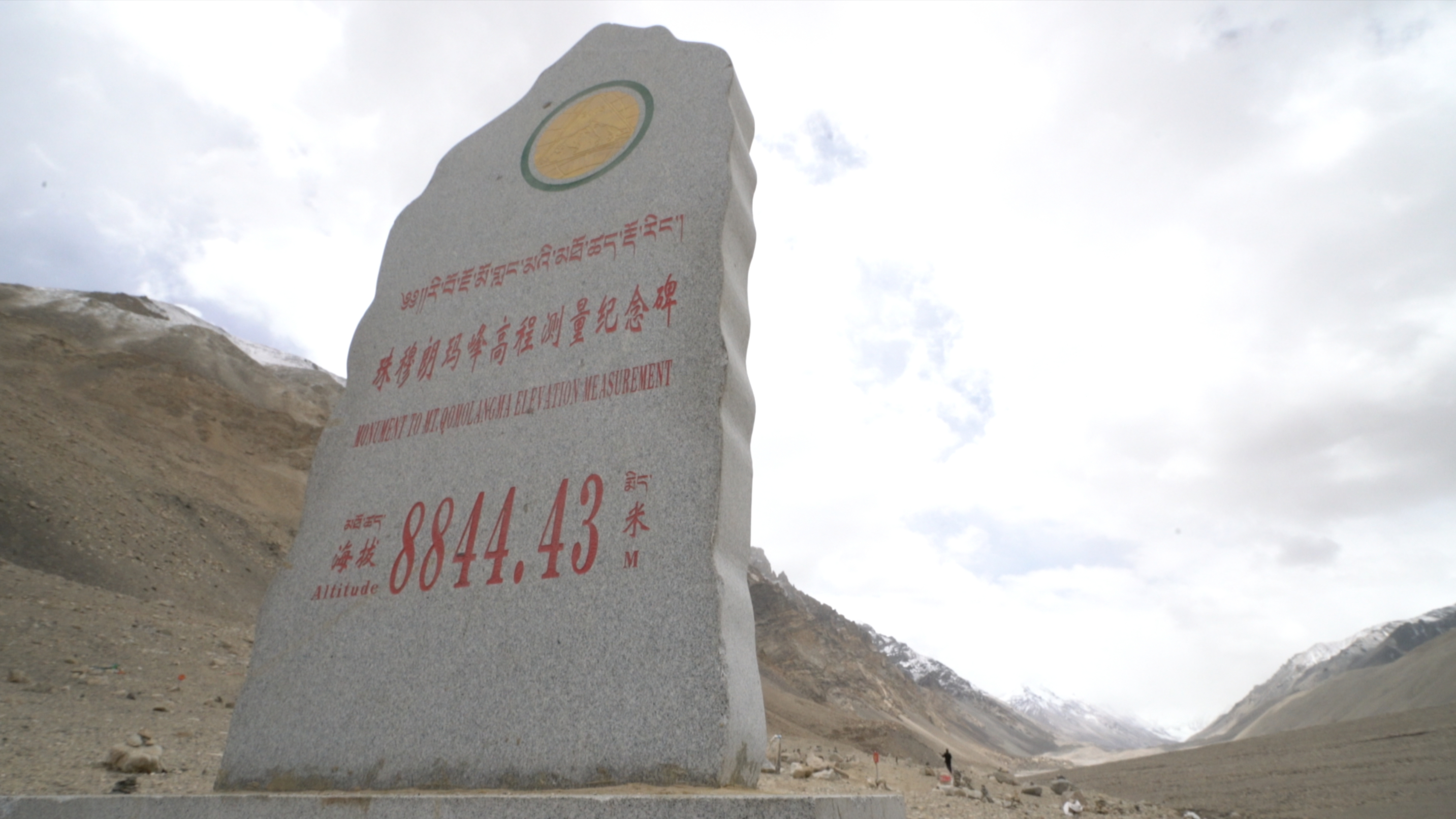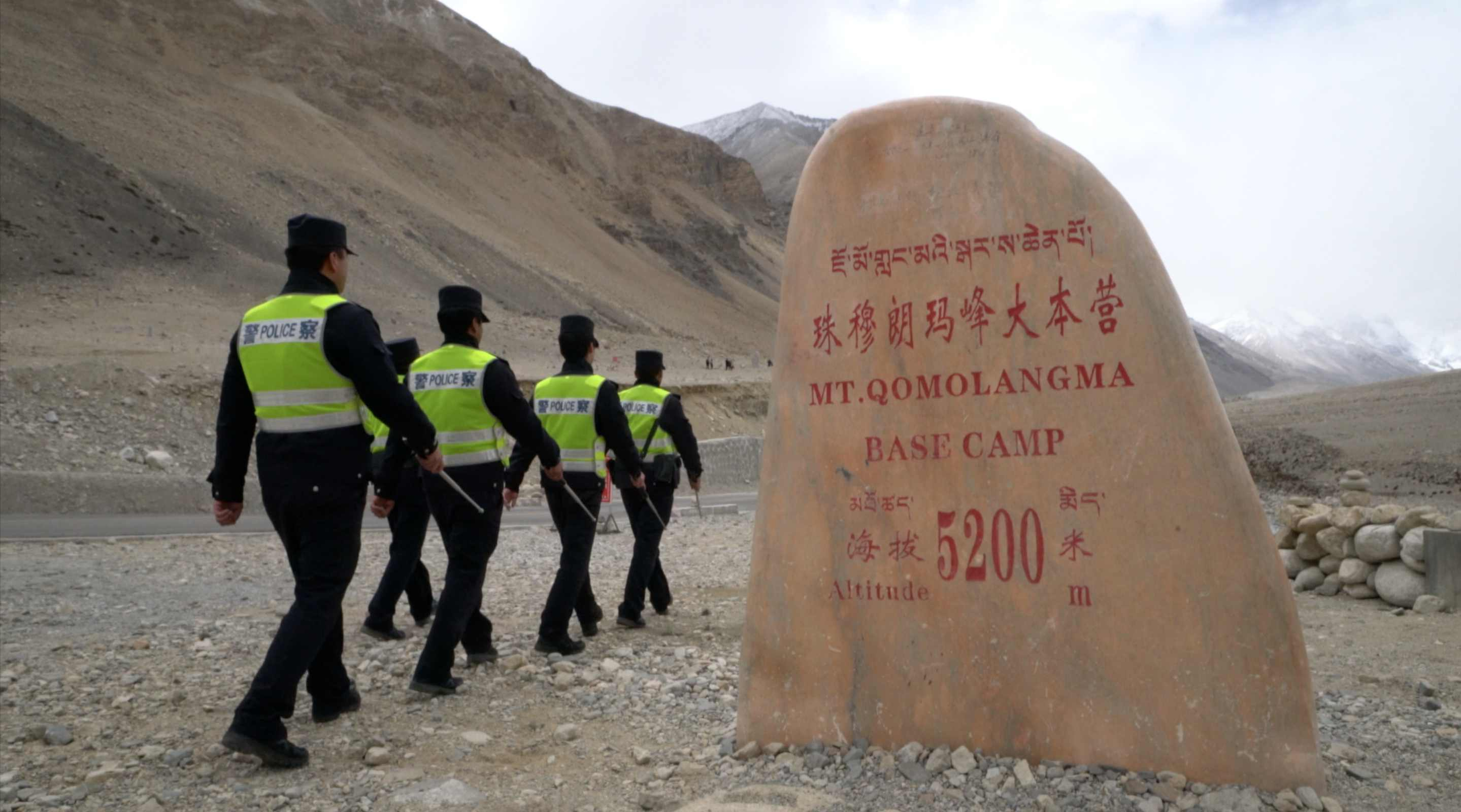

Spring is often considered one of the best times to conquer the highest mountain on earth – Mount Qomolangma, or Everest as it is known in the West. That's when there is less wind and precipitation.
The idea of being able to stand on the top of Qomolangma gives people enough of a thrill that so many dare to give it a try.
However, tragedy easily can happen – people die due to extreme cold and oxygen deficiency. And, I was not daring or trained enough to enjoy the view up from the top. Yet, I was able to meet a group of brave souls who spend most of the year stationed at Mount Qomolangma Base Camp, about 5,200 meters above the sea level. Their main task: rescue challengers who get stuck with one foot in the grave.
Qin Ziwei, born in 1999, a Chinese immigration police cadet looked so young that I had to double check his age several times. Qin joined the Qomolangma border police station three years ago. He is one of those who are looking for thrills. Qin told me that he chose to come to China's Tibet Autonomous Region because he has been attracted to Qomolangma after learning about it at school.

Qin Ziwei (L), a Chinese immigration police cadet, and He Guowei, chief of the Qomolangma Border Police Station. /CGTN Photo
"I never imagined I could be so lucky as to be stationed here – looking up at Qomolangma every day," said Qin.
After three years, he still feels he is in his honeymoon stage with the world's highest mountain. But those who have spent tens of years in the region have learned about the dangers hidden behind the astonishing view of the mountain the hard way.
"When we are out rescuing, it is possible for us to visit places 6,000 to 7,000 meters above sea level," said He Guowei, chief of the Qomolangma Border Police Station.
He added that they also enter glaciers on rescue trips that can be extremely dangerous. Ice cracks and collapses are only meters away. And there was one time, the chief himself had a close brush with death.
"Around October in 2016, the first alarm I received after getting stationed here was two tourists breaking our perimeter and trespassing into Qomolangma's Rongbuk Glacier," said He.
They spent over 12 hours maneuvering the glacier without food. When He fell, the only thought in his mind was that he had to get out for his families and comrades. The Qomolangma Border Police Station goes out 10 times or so each year to rescue eager challengers who don't follow the rules.

Chinese immigration police officers from the Qomolangma Border Police Station patrol around the mountain. /CGTN Photo
I spent about a half day at the Qomolangma Base Camp, and I had to stop several times to gasp for air just to finish the interview. Never mind patrolling and rescuing – I could barely walk on a small incline.
The mission that He barely survived is also imprinted in 20-year-old Qin's mind. When I asked if he still wanted to climb to the top of the mountain, he said no. But when asked if he wanted to be stationed elsewhere, he also answered no. He plans to stay around for another 10 years and when duty calls, he said, he will do what fellow officers do to keep the region safe for mountain climbers and maintain the beauty gifted by Mother Nature.

Copyright © 2018 CGTN. Beijing ICP prepared NO.16065310-3
Copyright © 2018 CGTN. Beijing ICP prepared NO.16065310-3